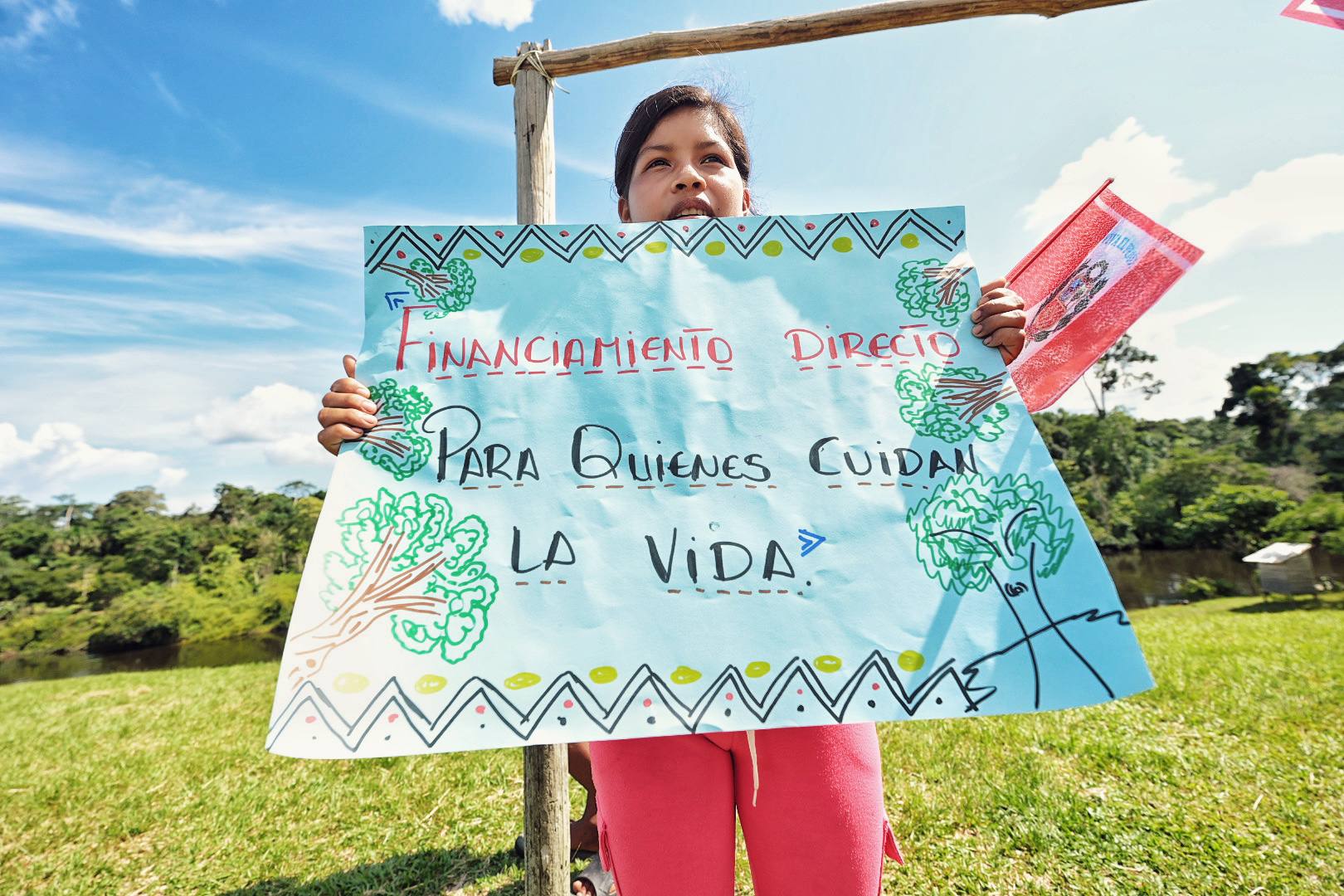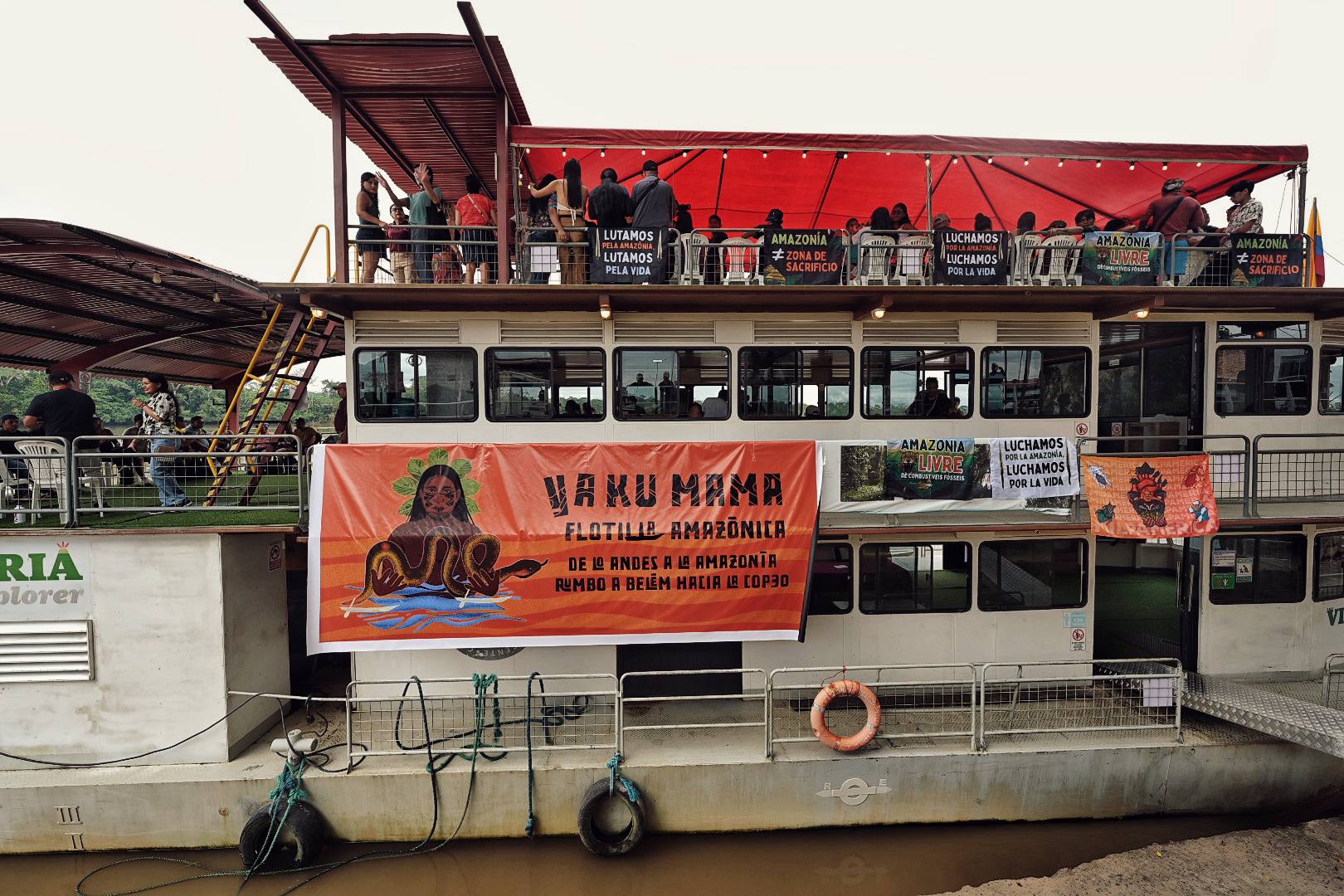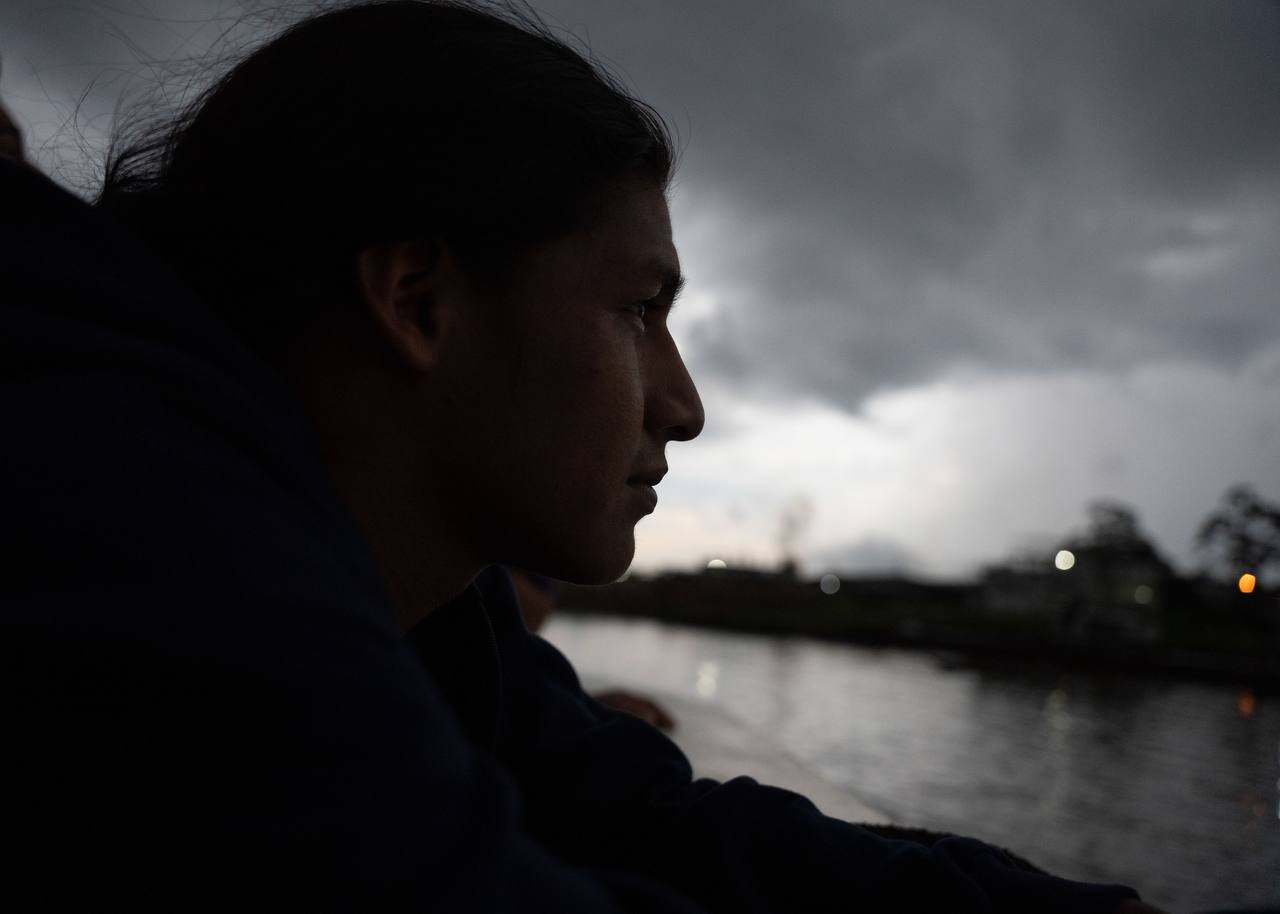
Indigenous Fleet Arrives in Peru to Tell More Stories of Amazonian Resistance
“Today we set foot on land in Iquitos,” says Lucía Ixchiú, a member of the Yaku Mama Caravan Coordination.
by Lucia Ixchíu
Amid the heat that envelops the Amazon rainforest, after crossing the border between Ecuador and Peru and making a stop at Yarina Island, we continued our journey toward Iquitos — the largest city in the world with no road access.
We docked around 4 p.m. and said goodbye to the pilots and boats that had accompanied us for several days. We arrived at the place where we would stay for the next three days of this voyage upriver. At last, we left the Napo River behind and met the vast Amazon River.
Between lines to eat, lines to unload baggage, lines to catch motorcycle taxis, and lines to board the buses that would take us to our lodging, we finally had the chance to stretch our backs on something other than the floor.
This journey is a deep existential transformation — and, to me, a precious gift, as it allows us to travel along a route that crosses not only the river but also our inner selves. After disembarking, for several days we still felt the sensation of floating on water.
Arriving at the hotel amid the chaos and heavy traffic was, without a doubt, another adventure. At last, we could sleep and rest our bodies before continuing the next day with a schedule led by Muyuna — a floating cinema collective from the city that works among the waters.
We began our visit in the Belén neighborhood, where we encountered a remarkable market filled with all kinds of plants and species found only in the Amazon — turtle eggs, edible larvae, an explosion of scents, and a polluted river that stood in stark contrast to the living waters we had been seeing before arriving in the city.
The city of Iquitos floods every year from December to May, and its inhabitants have long learned to live this way. I find that deeply impressive — a testament to their capacity for adaptation, though of course, the rising waters and floods are also a consequence of biodiversity loss and environmental destruction.
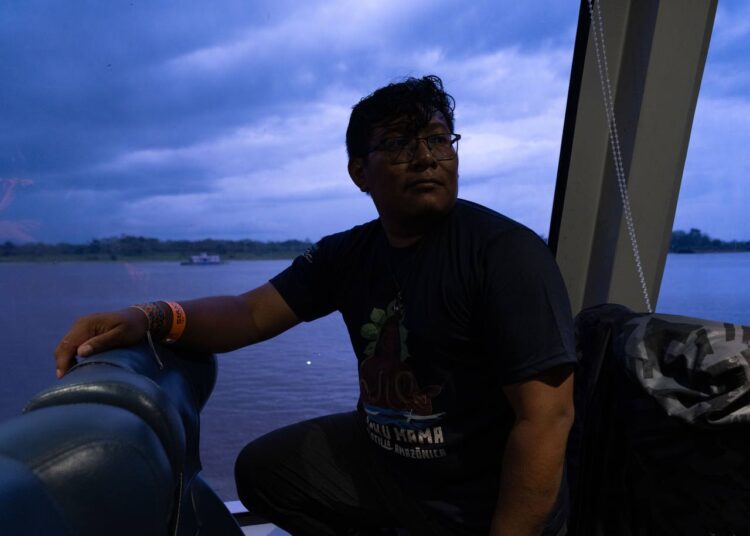
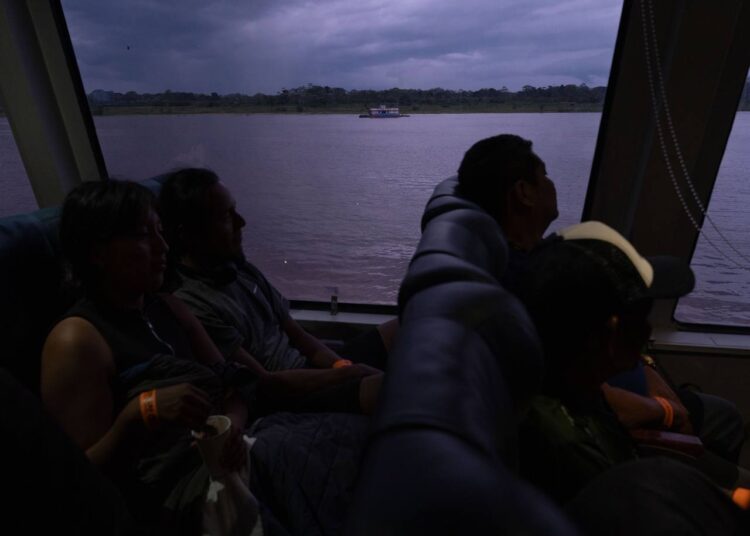
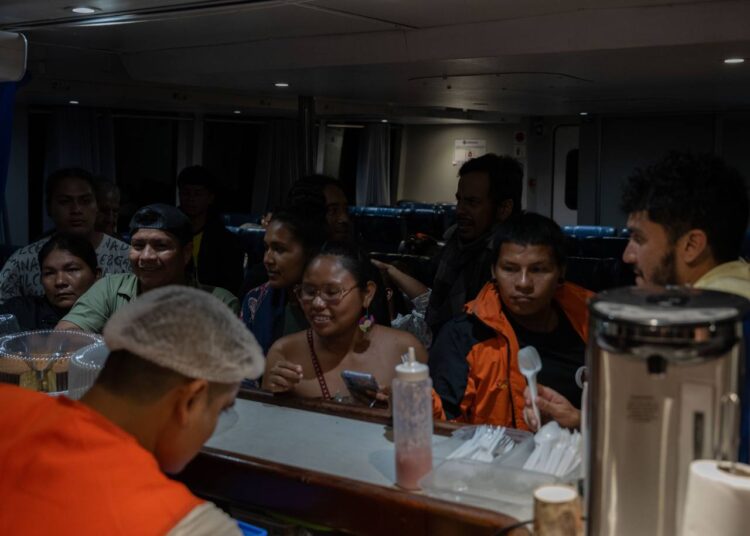
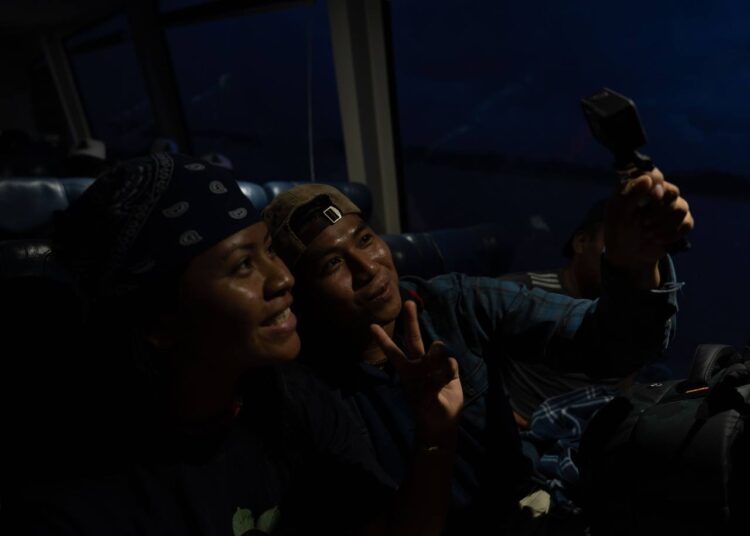
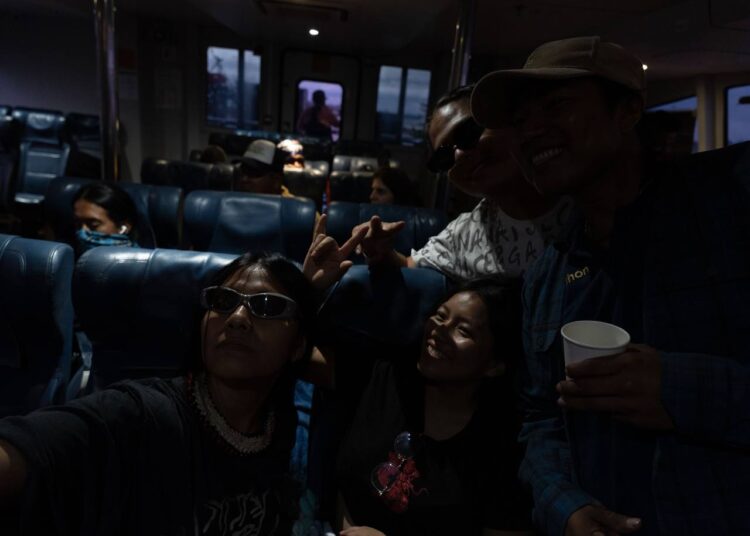
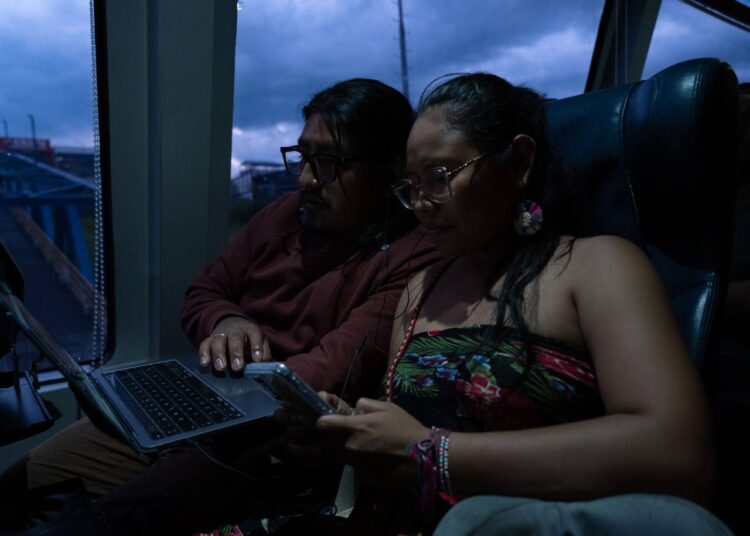
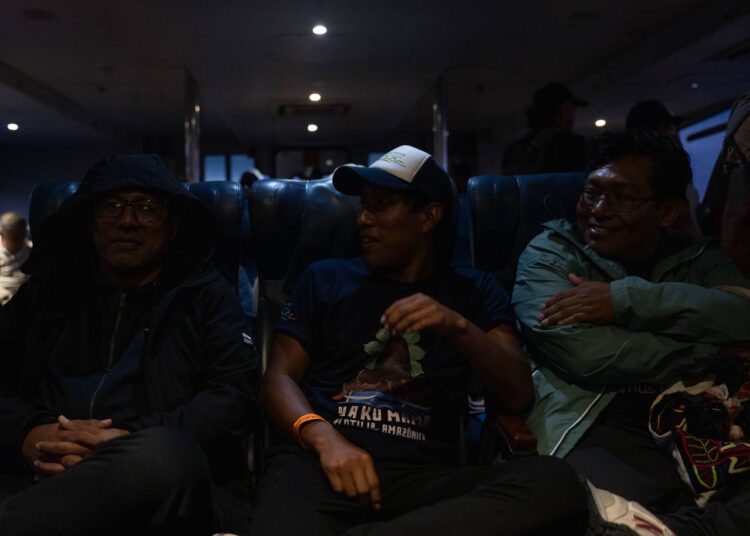
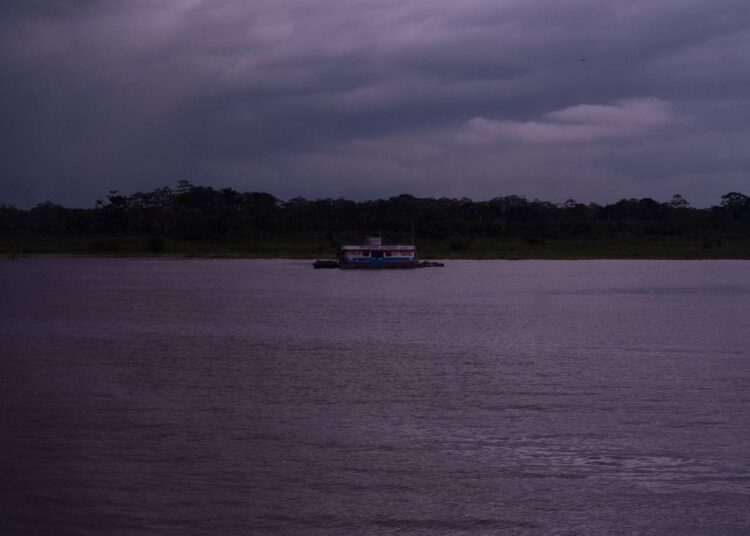
After lunch, we headed to the port to continue traveling through the lagoons and rivers of these territories. We arrived at Muyuna Beach — also known as Bonita Island — where we carried out an act of solidarity with Brazil. Yesterday, we learned that Petrobras had been granted a license for offshore oil exploration. It is painful and disheartening that, even as the flotilla sails, such things continue to happen — but at least we are together, supporting one another across territories.
Touching the land is also part of this journey across the water. Our Mayan ancestors used to say that harmony is found by balancing water, fire, air, and earth — and that is exactly what we seek now. We draw strength from the land, finding a moment of calm before continuing deeper into this jungle that is both fierce and beautiful.
This journey dismantles myths and stereotypes about the rainforest. Being here is neither easy nor romantic — but that’s what life is. The rashes on our skin and the countless bites from insects, fleas, and mosquitoes remind us that honoring nature and being part of it also means accepting all of this — that stepping out of our comfort zone is part of breaking away from the complacency and parasitism of urban life, and that returning to the land is anything but simple.
The forest has its own time, its own rules, its own path. We thank it for welcoming us and teaching us to walk alongside it.

